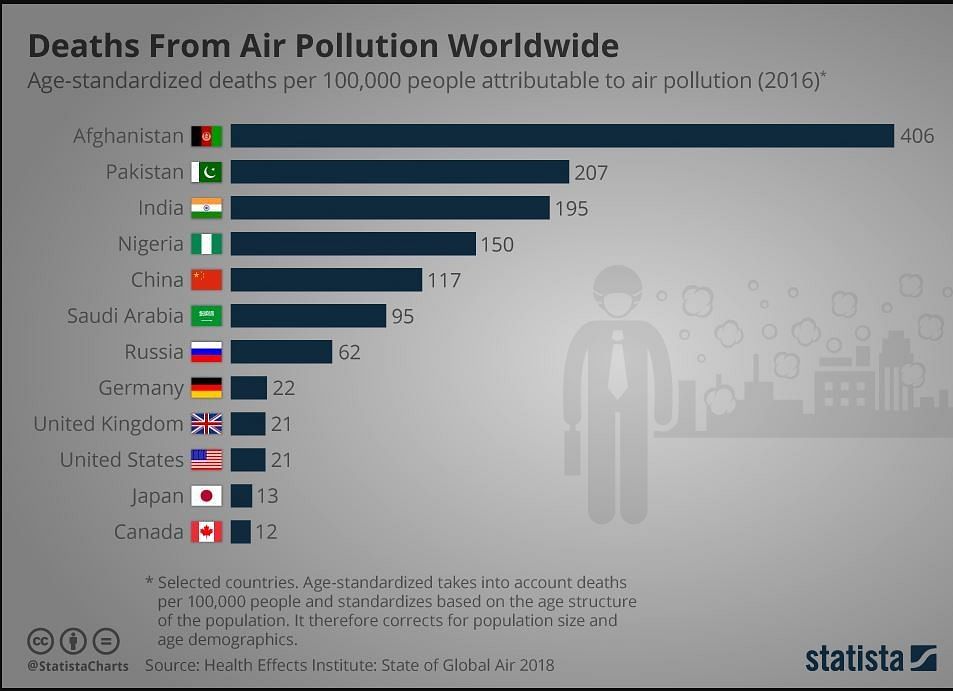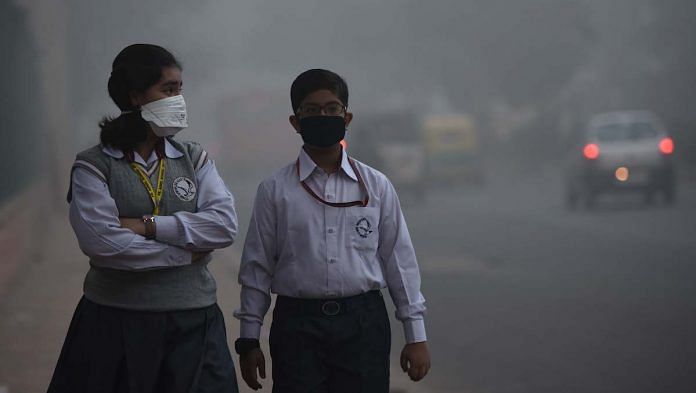The World Health Organisation (WHO) says almost 700,000 children under five die each year as a result of air pollution. Millions more are being condemned to a life of ill health because of the damage it does to their developing brains and bodies.
Which is hardly surprising when you realise nine out of ten of us are breathing polluted air. The WHO says more than 93% of the world’s 1.8 billion children are exposed to toxic air pollution, including 630 million under the age of five.

In the developed world, more than half of children under five are exposed to levels of air pollution above WHO safe limits. But in the developing world that figure rises to a shocking 98%.
Children are more at risk
Children are particularly vulnerable. With each breath, they take in more air per unit of body weight than adults. Fine particulate matter, tiny pollution particles in the air that are thinner than a single human hair, poses a particular threat. They can travel from the lungs to the brain, harming membranes which protect from toxic substances.
The dose of toxic chemicals required to harm a developing brain is much lower than that which would damage an adult. As well as particulates, high levels of magnetite particles, a pollutant associated with neuro-degenerative diseases, have been found in the brains of people living in urban areas.
Also read: Air pollution is a public health problem also related to racial injustice
Dirty cities
Urbanization is a major cause. The World Economic Forum forecasts that by 2050 more than two-thirds of the world’s population will live in cities. While cities are the engines of the global economy, accounting for 80% of GDP, they also produce 75% of global CO2 emissions.
Although CO2 is driving climate change, at ground level it’s pollutants like particulates and nitrous oxide given off by burning fossil fuels that are harming children. Outside cities, domestic open cooking fires are a major cause of ill health in children, even if the air outside the home is cleaner than in a city.
According to the American Lung Association, children are particularly vulnerable to air pollution because their lungs are growing and they are more active outdoors than adults. Playing leads to children breathing in more polluted air as they are closer to the ground.
The majority – 80% – of lung development takes place after birth and continues throughout childhood. Lacking the natural immunity developed by adults over time, children are also more vulnerable to respiratory infection, which in turn increases their susceptibility to air pollution.
What can be done?
The WHO and Unicef agree that urgent action is needed to cut emissions worldwide, especially in cities. Rapidly urbanizing nations have the opportunity to bypass older polluting technologies and go straight to cleaner zero emission alternatives.
Giving families access to clean cooking fuels would make a massive difference to children in rural areas. More than 40% of the global population does not have access to clean fuels and, although their availability is increasing, the WHO says it is not keeping pace with population growth, particularly in sub-Saharan Africa.
Action is becoming increasingly urgent. A 2018 United Nations report said that although child mortality rates have more than halved in the past two decades, poor air quality has led to higher death rates among children in their first year of life. Unless we act now, years of progress on child health could be reversed.
Also read: Delhi’s air pollution is probably making you sad
This article was originally published on World Economic Forum



